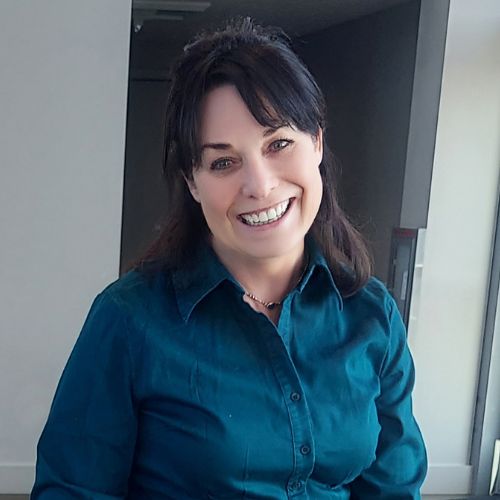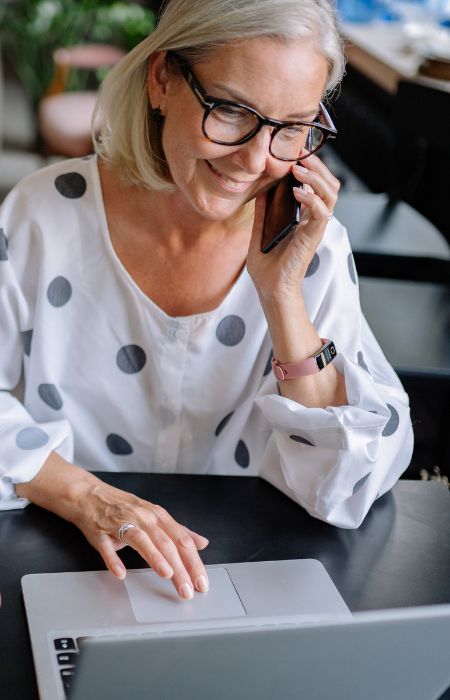
ADHD People Pleasing
Dear Beth,
I’ve always gone out of my way to make others happy. I usually offer help and don’t wait for them to ask. I’ll stay late at work to help a co-worker or rearrange my weekend last minute to help a friend. I love seeing others smile, but honestly it feels like I’m constantly putting everyone else’s needs ahead of my own.
I’ve become the go-to person for favors and support, and while I want to be there for my friends and family, I’m so slammed with everyone’s things to do, I wonder if they’d ever think to proactively offer to help me. It hasn’t happened yet.
How can I support my natural inclination to please others, but also learn how to set boundaries and begin to identify my needs and wants? I’m starting to feel resentful and burnt out, but I can’t imagine saying ”no” when someone asks for something. Any advice on finding a balance?
Signed,
Bending Over Backwards
Dear Bending Over Backwards,
I can relate to a lifelong desire to make others happy. I thought people-pleasing was my superpower and I was proud of it. When I recognized how much I needed to learn to set boundaries, it was hard to control pleasing others out of habit. I could never say ‘no’ unless I was close to a breaking point. Through devasting times I learned how crucial it is to find a balance that includes my well-being, too. Here are some things I’ve learned…maybe some will work for you too.
- Acknowledge Your Instinct and Say So Out Loud to Yourself.
Acknowledge the pull to support and bring joy to others. Your kindness is a strength. It may be hard to do at first, because with a lifetime of ADHD, we fear rejection, and we’ve learned to be our harshest critic. - Reflect on Your Personal Needs.
Take some time for self-reflection. What are your needs and wants? Understanding your own values is the first step in setting boundaries.My Go-To Resource: Compete To Create, by Coach Pete Carroll and Dr. Michael Gervais. This book changed the way I thought about how decisions are made. When you itemize values that you can feel deep inside, reflect on why they feel that way, and then prioritize them you have the foundation for your life/decision compass. It’s like your personal north star or mantra that makes it clear why you do what you do. Once you have your compass based on your values set, decisions become much clearer and easier. You and the people in your important relationships should also develop a values and compass set. There will be so much less to disagree about.
- Prioritize Self-Care.
Just as you care for others, you must prioritize self-care. If you don’t, who will? It’s not selfish; it’s essential for your energy and positivity you bring to your relationships. Yet, this is the hardest thing on the list, especially if you live with other people.
My Go-To Resource: Marriage Meetings. 30 Minutes a Week to the Relationship You’ve Always Wanted. You might think this is an odd resource for self-care. Don’t let the title scare you away. This book is for anyone who lives with anyone. The easiest way I found to put my own self-care out on the table for everyone to support is the platform of these meetings. Not only does it keep my needs on the agenda, it helps those living with me to hear, see, and make space for what I need, no matter how clumsy I am in articulating it. - Build Your Core.
This is the perfect follow-on after Self-Care. When I say “core”, I mean the muscles in between your ribs and your pelvis. Several times in my life I found myself weak and at personal crossroads. Each time I started taking Pilates reformer classes and felt stronger immediately after my first session. Day-by-day over the following week, I noticed areas of my physical and mental health were improving that I had no idea were connected to doing core exercises. Okay, this is personal…here goes. My bladder got stronger. My decision making got stronger. Decisions about what I ate got stronger. Decisions about using a boundary became easier. Decisions about how I felt about myself got better. I understand Pilates may not be for every body. I hear yoga and tai chi can do the same thing. I’ve not tried them, so ask around about the unexpected areas that can improve.My Go-To Resource: If you are one who appreciates scientific evidence via a good research meta-analysis, this one is recent and well done: The effects of Pilates on mental health outcomes: A meta-analysis of controlled trials – ScienceDirect. I wish I had a go-to resource for a local studio for you. My best advice is to search online for a studio that has gentle classes for newbies. Also, some physical therapists use Pilates for rehab. I’m using one now and I’m getting results much faster. Try it. Please.
- Gradual Boundary Setting.
Start small when setting boundaries. It’s completely normal for it to feel awkward and clumsy at first. I felt the irony when those who drove me to learn about boundaries left before I did. Those who cared most about me had to endure my awkwardly learning how like a young mutant superhero accidentally setting off their powers.
My Go-To Resource: Beyond Bitchy, Mastering the Art of Setting Boundaries. I highly recommend listening to this podcast over and over and over again. I would sit in my car and practice repeating the words. - Practice Saying No.
Saying “no” is a skill. Practice in low-stakes situations to build confidence. Remember, saying “no” to some requests is saying “yes” to your well-being.My Go-To Resource: The Power of a Positive No: Save The Deal Save The Relationship and Still Say No by William Ury
- Seek Reciprocity.
True relationships involve reciprocity. It’s simple to say and hard to do. If someone cares about you, they’ll want to support you in return. The counter to this is it will hurt like hell if they do not care enough to be there for you. Hopefully they will leave if they cannot support you. I say hopefully because it’s worse if they stay and devalue you into emotional dust. As hard as this can be to consider, believe me…it’s better when they show you who they are, believe them and let them leave. Someday you’ll decide what you can support and what you cannot support. In the meantime, let them do the hard thing and go…no matter what…keep practicing your beyond bitchy boundaries with pride. - Communicate Openly.
Say the awkward thing. People will be relieved. Be upfront with friends, families, and co-workers who are good friends. Say “You know, this might seem a bit awkward, but I’m actually going to practice a boundary here. Be patient with me…I’m getting better at it.” They’ll be impressed. - Embrace Support Networks.
If you haven’t heard it enough from me, JOIN AN ADHD SUPPORT GROUP. My favorite is CHADD, but there are many others out there on ADDA, Psychology Today, Facebook, Meetup…you get the idea. Learn from others’ experiences balancing between helping others and prioritizing self-care. Once you are a bit less overwhelmed, ask to volunteer. Helping others newer to ADHD is a great way to practice boundaries and remember how far you’ve come. - Be Patient with Yourself.
Changing habits takes time. Be patient with each step and each backstep. Say out loud, “wow, that worked”, or “ug, I missed it that time…doesn’t feel good.” Being kind to yourself makes it easier to assert your needs. Those around you will either accept and support, or they will opt out. This is really good information to have…a sorting process of those who will stick by you as you develop healthy new skills, and those who won’t.
As you practice these strategies you’ll find they become easier. They’ll positively impact your life and enhance your relationships. Each attempt at one of these will make you stronger. You deserve to be supported just as much as you support others.
Finding a good balance is one more part of our work-in-progress life with ADHD. I’m wishing you all the courage to take the first step. I’ve been there. I hope my awkward stumbles learning these strategies make it easier for you. Let me know what works and what doesn’t. Learning from each other helps us go faster. Everyone benefits…which sounds a lot more like true people-pleasing to me…all without having to be a contortionist.
Take care,
Beth
About the Author

Hey there! I'm Beth, a neurodiversity advocate and consultant here to help smooth the path of your ADHD journey.
The Latest in The Blog
The Hidden Patterns of RSD No One Understands
How Mapping RSD Helped Me Understand It
RSD was hard to explain at first—what I thought were just normal feelings turned out to be something much more interesting. Realizing it was part of my ADHD was a turning point. To make sense of it, I mapped out the seven phases of an RSD episode—from the trigger’s impact until it fades. Seeing these phases clearly not only helps in choosing strategies in the moment but also revealed deeper patterns—like over-apologizing, over-explaining, people-pleasing, perfectionism, and the exhausting cycle of procrastination/burnout. It shed light on why setting boundaries felt impossible and why second-guessing everything became second nature. A lot of recovery has come from learning about RSD—I hope it helps others find the same clarity.
No results available Reset filters?





